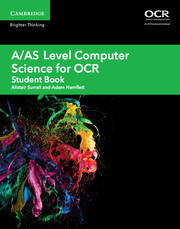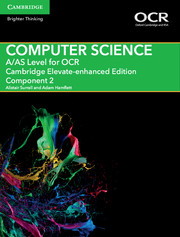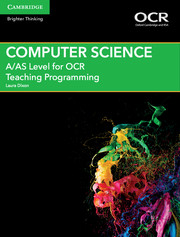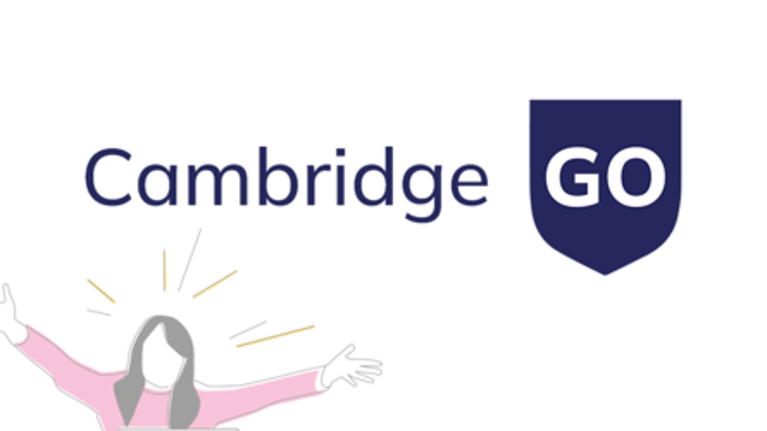A/AS Level Computer Science for OCR Student Book
Overview
Written for the OCR A/AS Level Computer Science specifications for first teaching from 2015, this print student book helps students build their knowledge and master underlying computing principles and concepts. The student book develops computational thinking, programming and problem-solving skills. Suitable for all abilities, it puts computing into context and gives students a real-life view on professional applications of computing skills. Answers to end-of-chapter questions are located in the free online teacher’s resource. A Cambridge Elevate enhanced edition is also available.
Features
- Development of key computational thinking and problem-solving skills embedded throughout.
- Covers all the Component 1 and Component 2 content for AS and A Level, with A Level-only content clearly flagged.
- Free online teacher’s resource available.
Contents
- Component 1
- Introduction
- 1. Structure and types of processor
- 2. Input, output and storage devices
- 3. Systems software
- 4. Applications and translators
- 5. Software development
- 6. Types of programming languages
- 7. Exchanging data
- 8. Databases
- 9. Networks
- 10. Web technologies
- 11. Data types and representation
- 12. Data structures
- 13. Boolean algebra
- 14. Legal and ethical issues
- Component 2
- 1. Thinking abstractly
- 2. Thinking ahead
- 3. Thinking procedurally
- 4. Thinking logically
- 5. Thinking concurrently
- 6. Programming techniques
- 7. Computational methods
- 8. Algorithms.
Brighter Thinking Blog
Keep up to date with the latest classroom tips and educational trends from our brighter thinkers.
Visit the blogCatalogues and Ordering
Looking for something in particular or just browsing? View our catalogues to see our full range of print and digital books.
View and downloadAdvice on useful tools
Advice on useful tools, activities and timetabling from teachers experiencing school closures.
Cambridge GO
All our supporting resources have now moved to Cambridge GO – the new home for your Cambridge digital content.
Listen to our podcast
Listen to our podcast to discover teaching inspiration & advice from leading educational thinkers.








